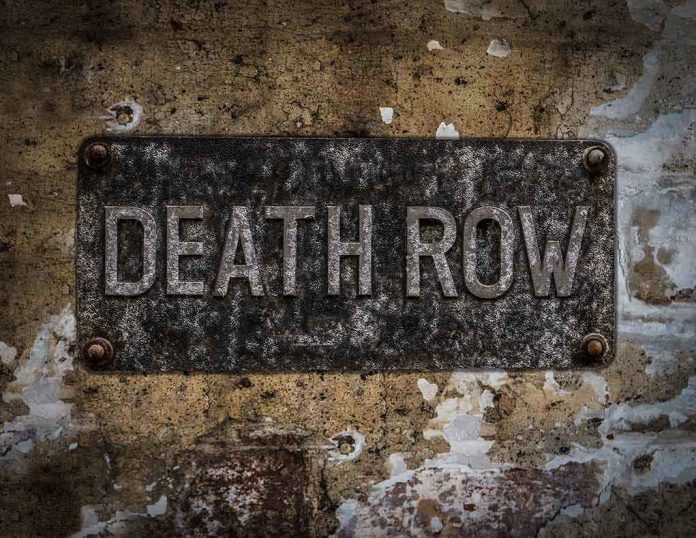
A man condemned to die in Tennessee has just forced the state to choose for him—reviving a centuries-old debate about how America should execute its most notorious criminals, and why, in 2025, we still allow them a choice at all.
Story Snapshot
- Death row inmate Harold Wayne Nichols refused to choose between lethal injection and the electric chair, defaulting to the state’s new single-drug protocol.
- Tennessee remains the only state to use the electric chair in the past decade, spotlighting its controversial dual-method system.
- Legal battles over execution protocols, drug sourcing, and humane procedures have paused executions and may upend Nichols’ scheduled death.
- The decision reignites questions about inmate rights, victim closure, and whether the modern death penalty system still reflects American values.
Tennessee’s Execution Dilemma: The Law and the Legacy
Harold Wayne Nichols, convicted for the brutal 1988 rape and murder of Karen Pulley, faces execution on December 11, 2025. Tennessee law grants inmates sentenced before January 1999 a rare choice: die by lethal injection or electrocution. Most Americans assume the electric chair vanished with the last century, banished by botched executions and shifting sensibilities. Yet Tennessee keeps the option alive, making Nichols’ refusal to choose more than just a bureaucratic footnote—it’s a flashpoint in a national conversation about punishment, dignity, and the machinery of justice.
Nichols’ decision is more than an act of resignation. In 2020, he selected the electric chair, only for his execution to be postponed during the COVID-19 pandemic. The state’s lethal injection drugs then failed an independent review in 2022, halting all executions and prompting Tennessee to overhaul its death protocols. Now, with a new single-drug regimen—pentobarbital—the clock is ticking again. Nichols’ silence triggers the default: lethal injection. He has two weeks to change his mind, but time and precedent suggest he won’t. This single act loops in history, law, and the limits of human agency under the death penalty.
The Players: Power, Motives, and the Struggle for Control
The Tennessee Department of Correction controls the mechanics, setting dates and protocols. Governor Bill Lee holds the power to grant reprieves or demand reviews, balancing law, ethics, and the weight of public opinion. Death row attorneys mount challenges, targeting the constitutionality of protocols and the risk of cruel punishment. Nichols, the condemned, holds the thinnest sliver of agency—his method of death. Karen Pulley’s family waits for closure, their grief and hope tangled with every legal delay and procedural turn. Power in this drama is layered and contested, with the final decision resting uneasily on the intersection of law, politics, and the human cost of justice.
Legal challenges now swirl around Tennessee’s revised execution protocol. The new single-drug method, announced in December 2024, faces an April 2026 trial that could upend the entire system. Nichols’ execution, scheduled for December 11, 2025, will be the first under this protocol if it proceeds. The outcome could set precedent for dozens of death row inmates, many also eligible to choose their method. Tennessee’s experience—its dual-method law, public scrutiny, and legal battles—may ripple to other states, influencing future debates on execution methods and inmate rights.
From Punishment to Precedent: What Nichols’ Case Means for America
Nichols’ refusal to choose his method of death is not just a personal act—it’s a legal and cultural signal. In the short term, his execution will test Tennessee’s new protocol and may fuel further legal appeals. Long term, every decision—by Nichols, the Department of Correction, the Governor, and the courts—shapes the path for future inmates, victims’ families, and the broader criminal justice system. Legal costs mount as protocols evolve and challenges drag through the courts, but debate rages far beyond the courtroom: Should condemned men and women have a say in how they die? Is the electric chair a relic or a safeguard? And does the death penalty itself still reflect American values—retribution, closure, deterrence—or simply a system in need of reform?
Tennessee death row inmate declines to chose between the electric chair and lethal injection https://t.co/rm8Q2buboY pic.twitter.com/IdtUjnVIYS
— The Independent (@Independent) November 11, 2025
Legal experts highlight the rarity and symbolism of the electric chair. Advocacy groups argue both methods—lethal injection and electrocution—raise profound ethical and constitutional questions. Scholars dissect the complex legal terrain, noting the difficulties in ensuring humane procedures and the risks of error. Some see Tennessee’s dual-method option as outdated, pointing to botched executions and public discomfort; others defend it as a necessary safeguard for inmate rights, a way to prevent cruel and unusual punishment. News outlets and official statements consistently report the facts: Nichols declined to choose, the state will proceed with lethal injection, and the future of Tennessee’s death penalty system hangs in legal uncertainty.
Sources:
Forest Park Neighborhood Association


